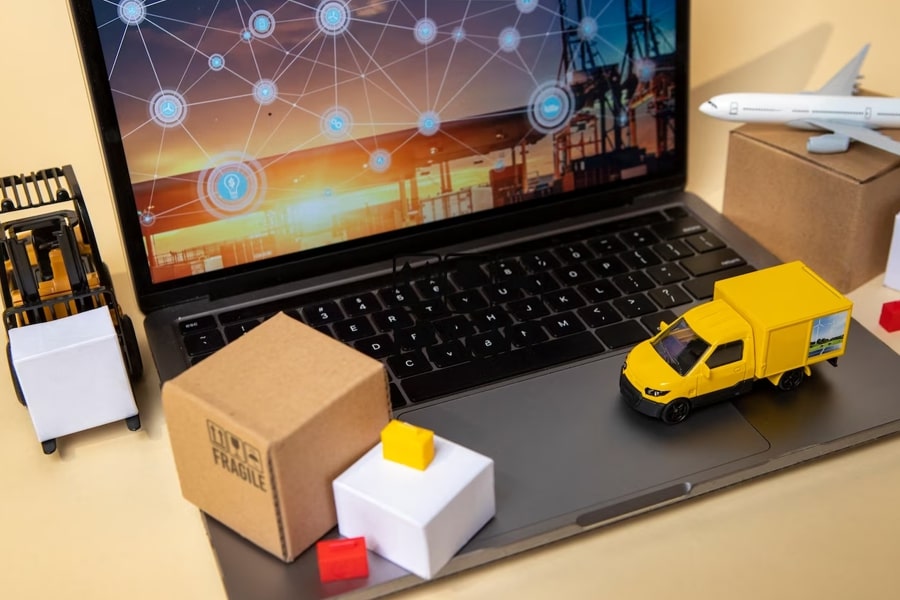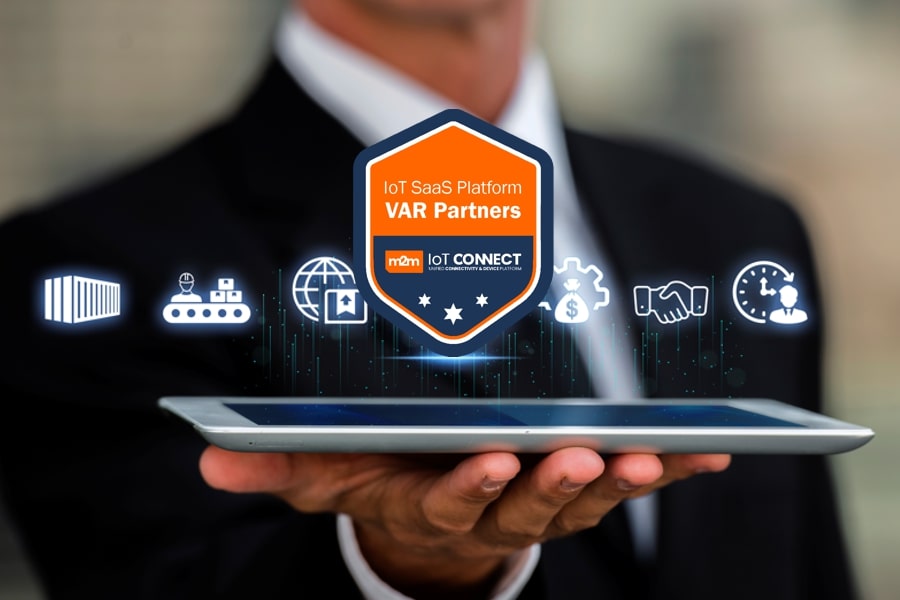Streamline your processes now and discover the amazing potential of IoT platforms. From real-time tracking to predictive analytics, IoT platforms can help you track your goods, optimize delivery times, and reduce costs. Plus, their scalability and flexibility make them a great fit for all types of logistics operations. With the right platform, you can gain a competitive edge and take your logistics to the next level.
IoT (Internet of Things) platforms play a crucial role in optimizing supply chains, improving tracking, and enhancing efficiency in the logistics industry by leveraging the power of connected devices and data analytics. Here’s how IoT platforms achieve these benefits:
IoT Platform for Logistics Real-time Tracking & Monitoring
IoT Platform for Logistics enable the integration of sensors and devices throughout the supply chain. These sensors can track the location, temperature, humidity, and light exposure. And other relevant parameters of goods and assets in real-time. This information provides visibility into the entire supply chain, allowing logistics managers to monitor the movement and conditions of goods throughout the journey. Real-time tracking helps prevent delays, reduces loss or damage, and enables quick response to any anomalies.
With the ability to track and monitor shipments and cargo in real-time, companies can make more informed decisions, reduce costs, and improve customer satisfaction. IoT has enabled a more efficient and accurate supply chain management system that can help businesses save time and money, while also providing customers with a better quality of service.
Data-driven Decision Making
For example, the IoT platform can be used to monitor the temperature of cargo containers, track the location of goods in transit, measure the performance of delivery vehicles, and even predict the demand for specific products. This data can be used to optimize routes, increase efficiency, and reduce costs.
Additionally, IoT sensors can be used for predictive maintenance, providing an early warning of potential issues before they become expensive problems. In addition to cost savings, the use of IoT in logistics also helps to improve customer service, as businesses can quickly identify potential problems and provide solutions.
IoT platforms gather a wealth of data from sensors and devices. This data is collected and analyzed. And then transformed into actionable insights using advanced analytics and machine learning algorithms. Logistics companies can make informed decisions based on this data, such as optimizing routes and adjusting delivery schedules. Along with predicting maintenance needs for vehicles and equipment.
Predictive Maintenance using IoT Platform for Logistics
With the help of IoT platforms, logistics companies can improve their operations and increase their competitiveness. Additionally, IoT platforms can help to monitor and optimize the performance of vehicles and other assets, reducing fuel costs and increasing efficiency.
Inventory Management
Route Optimization
With this technology, companies can save money by reducing fuel costs and improve customer satisfaction by delivering packages faster. Additionally, some companies are using machine learning to predict customer demand and optimize inventory levels, resulting in improved supply chain efficiency.
Cold Chain Monitoring
Supply Chain Visibility and Transparency
Reduced Manual Labor and Errors
With the help of an IoT platform, businesses can now track their inventory in real-time, receive automated notifications about possible delays or issues, and quickly process orders and deliveries. Furthermore, an IoT platform can also provide insights into customer behavior, helping businesses to better understand their target audiences and optimize their services.
IoT platforms automate data collection and processes that were previously done manually. This reduces human errors and frees up employees to focus on more value-added tasks, leading to increased overall efficiency.
Environmental Sustainability
In summary, IoT platforms are instrumental in transforming the logistics industry by providing real-time data, predictive insights, and automation capabilities. These technologies optimize supply chains, improve tracking accuracy, and enhance overall efficiency, leading to cost savings, improved customer satisfaction, and better resource utilization.
M2M IoT Connect Market Leading IoT Saas Platform
The M2M IoT Connect platform has the comprehensive ability to unify connectivity and device management. Our IoT SaaS Platform has the unique ability to harness the power of visibility on both sides of the network — operators and enterprise — to optimize the value and effectiveness of IoT Edge devices.
M2M IoT Connect provides solutions to complex problems of carrier platforms by unleashing and centralizing complete control of all IoT connectivity and edge devices into one unified view.






